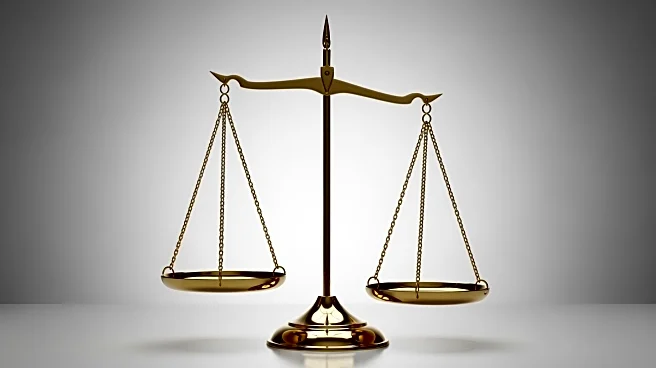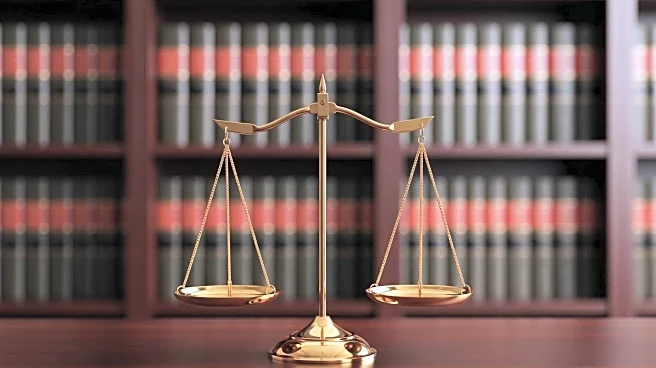What's Happening?
Brown Rudnick LLP is awaiting a decision from Judge Christopher M. Lopez of the US Bankruptcy Court for the Southern District of Texas regarding a $4.3 million legal bill related to Johnson & Johnson's
talc liability unit bankruptcy case. The dispute arises from Brown Rudnick's fee request and the ethical implications of the firm's decision to switch client representation during the Chapter 11 case for Red River Talc LLC. The bankruptcy case was dismissed in March due to flaws in the company's settlement proposal, leaving unresolved fee issues for Brown Rudnick and other firms advising a committee of cancer patients. The case involves complex legal ethics questions about whether Brown Rudnick should have been allowed to represent the committee after previously representing a coalition opposed to J&J's bankruptcy strategy.
Why It's Important?
The outcome of this legal dispute could have significant implications for bankruptcy law and legal ethics, particularly concerning the representation of clients with conflicting interests. If Brown Rudnick's fee request is denied, it may set a precedent affecting how law firms navigate client representation in bankruptcy cases. The decision could impact the financial liabilities of J&J's subsidiary, potentially influencing the company's strategy in handling its talc-related lawsuits. Additionally, the case highlights the broader issue of legal fees in bankruptcy proceedings, which can be substantial and contentious, affecting stakeholders such as creditors and law firms involved.
What's Next?
Judge Lopez has encouraged the parties to negotiate before he makes a decision, indicating that the fee requests will be closely scrutinized even if retention applications are approved. The court's ruling could lead to further negotiations or appeals, depending on the outcome. The decision may also prompt discussions among legal professionals about ethical standards and practices in bankruptcy cases, potentially influencing future legal strategies and client representation decisions.
Beyond the Headlines
This case underscores the ethical dilemmas faced by law firms in bankruptcy proceedings, particularly when switching client representation. It raises questions about the balance between legal obligations and financial interests, as well as the role of legal ethics in ensuring fair representation. The case may also influence how law firms approach conflicts of interest and client advocacy, potentially leading to changes in legal practices and standards.












